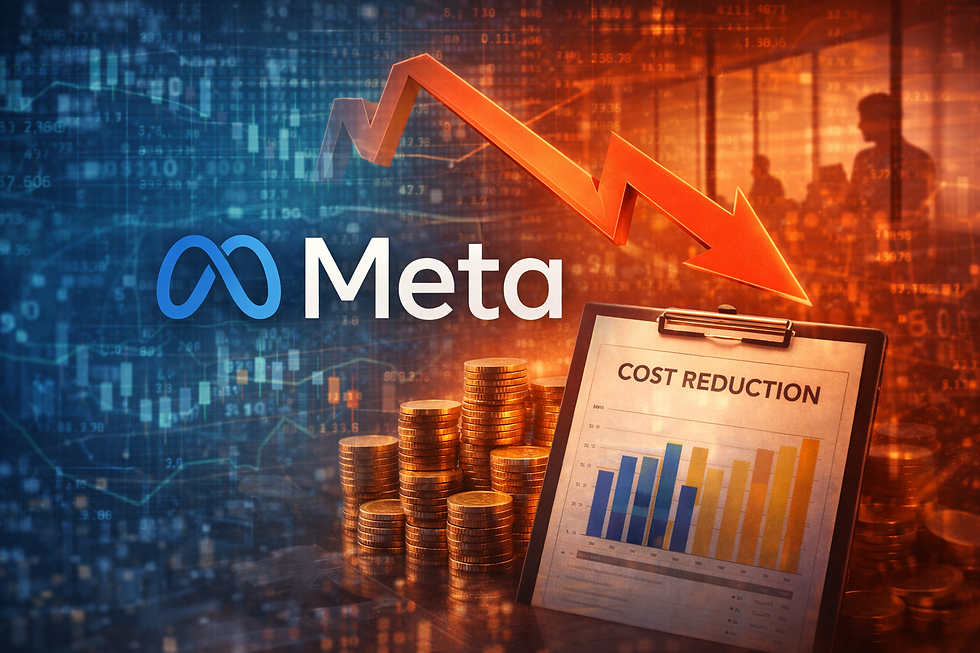Elon Musk Explores Blockchain to Tackle US Government Spending
- Jan 26, 2025
- 3 min read
Introduction Elon Musk, the tech visionary behind companies like Tesla, SpaceX, and X (formerly Twitter), is now setting his sights on blockchain technology as a potential solution to one of the United States’ most pressing challenges—excessive government spending. Musk’s interest in blockchain stems from its promise of decentralization, transparency, and efficiency, qualities that could revolutionize how public funds are managed and allocated.
As government budgets grow increasingly strained and calls for accountability rise, Musk's exploration of blockchain-driven reforms has ignited discussions about its potential to transform public sector governance.

Key Takeaways
Elon Musk is investigating blockchain technology as a tool to increase transparency in US government spending.
Blockchain’s decentralized nature could help track and manage public funds with greater efficiency.
The initiative highlights the potential for tech innovation to address long-standing governance issues.
Musk’s idea could face hurdles related to implementation, regulation, and political acceptance.
How Blockchain Could Revolutionize Government Spending
Decentralization and Transparency
Blockchain technology is built on a decentralized ledger system, where every transaction is recorded, verified, and stored across a distributed network. This framework could provide unparalleled transparency in government spending by enabling real-time tracking of how taxpayer money is allocated and used.
For instance, funds for infrastructure projects, public healthcare, or education could be monitored on an open ledger, reducing opportunities for corruption and mismanagement. Musk’s push for blockchain adoption could lead to more efficient resource allocation and improved public trust in government processes.
Enhanced Accountability
By using blockchain, government transactions could become immutable and easily auditable. Each expenditure would be logged with a digital signature, making it nearly impossible to alter records without detection. Such a system could deter wasteful spending and ensure that budgets are used as intended, directly addressing issues of fiscal irresponsibility.
Potential Challenges to Implementation
While blockchain offers many advantages, Musk’s idea isn’t without obstacles.
Regulatory and Political Resistance
Introducing blockchain into government operations would require significant regulatory changes and political willpower. Traditional systems of governance may resist such a transformative shift, especially if it disrupts existing bureaucratic frameworks.
Scalability and Security
Implementing blockchain at the scale required for managing national government budgets presents technical challenges. Blockchain networks would need to handle massive amounts of data while maintaining security, speed, and reliability.
Public Acceptance and Understanding
Educating the public and policymakers about blockchain’s benefits and limitations is crucial for widespread adoption. Without a clear understanding, skepticism and misinformation could hinder progress.
Musk’s Vision for a Tech-Driven Future
Elon Musk has a long history of using technology to address global challenges, from renewable energy to space exploration. His interest in blockchain as a governance tool aligns with his belief in leveraging innovation to solve systemic inefficiencies.
Collaboration with Experts
Musk has hinted at collaborating with blockchain developers and economists to explore practical solutions for integrating decentralized technology into government systems. By working with industry leaders, Musk could create a blueprint for blockchain-based fiscal management that other nations might also adopt.
Pioneering Global Change
If successful, Musk’s initiative could set a precedent for other countries to follow, paving the way for global improvements in government accountability and efficiency. Blockchain could become a cornerstone of modern governance, much like how the internet revolutionized communication and commerce.
Conclusion
Elon Musk’s exploration of blockchain technology to curb US government spending is a bold and ambitious proposal that highlights the growing intersection between technology and public policy. While challenges remain, the potential for blockchain to bring transparency, efficiency, and accountability to government operations is undeniable.
As discussions about fiscal responsibility and economic reform continue, Musk’s vision could serve as a catalyst for meaningful change, demonstrating how technological innovation can address even the most entrenched governance issues. Whether or not blockchain becomes a staple of public sector management, Musk’s advocacy has already sparked an important conversation about the role of technology in shaping the future of governance.










Comments